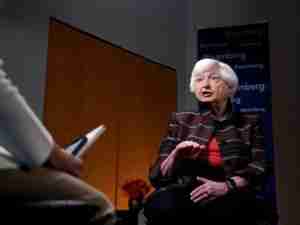May’s U.K. Election Woes Opened Door to Business-Friendly Brexit
By: Dylan Griffiths | Jul 04 2017 at 07:00 PM | International Trade
U.K. Prime Minister Theresa May’s disastrous performance in last month’s election handed Britain’s business leaders greater leverage to lobby for a softer Brexit, according to the Institute of Directors.
“The election has upside for the business community,” Barbara Judge, chairman of the industry lobby group with about 35,000 members, said in an interview in Geneva. “It’s opened the door for us.”
Business Secretary Greg Clark, Brexit Secretary David Davis and Chancellor of the Exchequer Philip Hammond are among the ministers canvassing business for ideas and solutions, said Judge, after addressing the British-Swiss Chamber of Commerce.
About 60 percent of the institute’s members said in response to a recent poll that the rights of European Union citizens in the U.K. was their top priority, while 72 percent said the government’s main challenge was to negotiate a new trade agreement with the bloc.
May’s government has struck a softer tone since the election, which deprived it of a parliamentary majority. Hammond told business leaders on Monday they must help make the case to Europe for a smooth Brexit. The chancellor also has argued that leaving the Brexit talks without a deal, as some including May have threatened, would be a “bad outcome” and that immigration should be managed rather than “shut down.”
“We’ve been arguing for this position on immigration from the beginning, but we weren’t being heard,” said Judge. “There will be a problem for industry if we don’t have immigration; we need talented, skilled labor.”
There are signs that others are working to get May to rethink her approach to the breakup. The U.K. should be working toward a “bespoke agreement” that comes close to replicating the single market, said Judge.
“Perhaps you find something that is the moral equivalent, but doesn’t use the words, or maybe that has some differences—something that’s not the full Monty, but close enough to approximate the benefits of the single market,” she said.
The voice of business leaders will gain greater weight if the economy is buffeted by fallout from the Brexit vote, she said.
“When we see inflation going up, when we see the pound going down, when we see the difficulties that will happen when a lot of companies start to move into the EU, then business will have examples of why it needs to be heard,” said Judge.








